Play prototype
Quarter-life Carnival's itch.io pageSubject-Matter/Problem Background
Failure is a natural part of life which provides valuable feedback and opportunities for learning. But many of us find failures ego-threatening, limiting our ability to learn from past mistakes and leave our comfort zone. To make matters worse, we have a tendency to hide our failures – creating an inaccurate perception of how common failure actually is.
Quarter-life Carnival normalizes failure by encouraging players to share their unsuccessful attempts and learn that past failure helps, not haunts, you.
Summary of Approach
We created Quarter-life Carnival, an “adulting” obstacle course in VR which prompts players to share failed attempts within the game in order to unlock "failure ghosts." This prototype contains two levels: Adversity Alley and The Insomnia Gauntlet. Players are informed of how many other players also failed at this point in the game. When the player chooses to share their failures, the use of VR offers a unique opportunity to observe these past failures, represented by ghosts serving as level guides. Failure ghosts re-enact the player’s unsuccessful tries, providing substantive clues, visual indicators, and assistance for them to succeed in the course. The players’ failure ghosts also become unlockable for future players.
We chose young adults as our community of focus because this age group is particularly vulnerable to low rebound from failure, though any group could enjoy and learn from our game. VR is the optimal medium for our project because it allows players to physically co-exist with their past failed attempts in third person. This virtual game environment provides safe grounds to fail, helping players build resilience against failures in their real lives. Quarter-life Carnival reminds players that “the biggest failure comes from the greatest reach.”
XR Platform
Meta Quest 2
Project Presentation
https://docs.google.com/presentation/d/1TbqC4zvgoyW98MIEt7-FKdyrMf7W06MdikLNnZ1yR7Y/edit?usp=sharing
References
Cao, X. E., & Ngetich, G. C. (2023). The need to normalize failure. Nature Reviews Chemistry, 7(2), 69–70. https://doi.org/10.1038/s41570-022-00454-x
Eskreis-Winkler, L., & Fishbach, A. (2022). You Think Failure Is Hard? So Is Learning From It. Perspectives on psychological science : a journal of the Association for Psychological Science, 17(6), 1511–1524. https://doi.org/10.1177/17456916211059817
Kim, M., & Son. L.K. (2023, February 23-26). How does my failure increase your persistence? [Single Paper Symposium]. The Society for Personality and Social Psychology. Atlanta, GA, United States.
Sakulku, J. (2011). The Impostor Phenomenon. The Journal of Behavioral Science, 6(1), 75–97. https://doi.org/10.14456/ijbs.2011.6
Full Credits for all Team Members and Contributors
Team 6: Blunderdogs
Tony Lopez (Producer, XR Developer, and Designer)
Aaron Santiago (XR Developer)
Evgeniia Rein (Technical & Environmental Artist)
Nicholas Moore (3D Artist, Composer, and Sound Designer)
Minhee Kim (Behavioral Research Subject Matter Expert)
Mercedes Hesselroth (Narrative and Interaction Designer)
Leave a comment
Log in with itch.io to leave a comment.



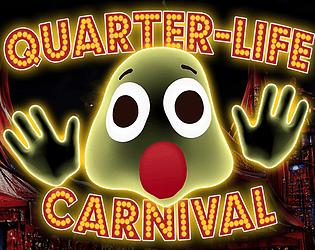
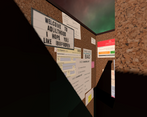
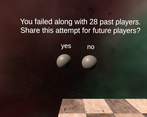
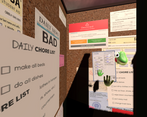
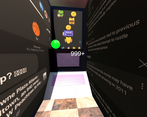
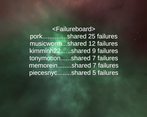
Comments
No one has posted a comment yet